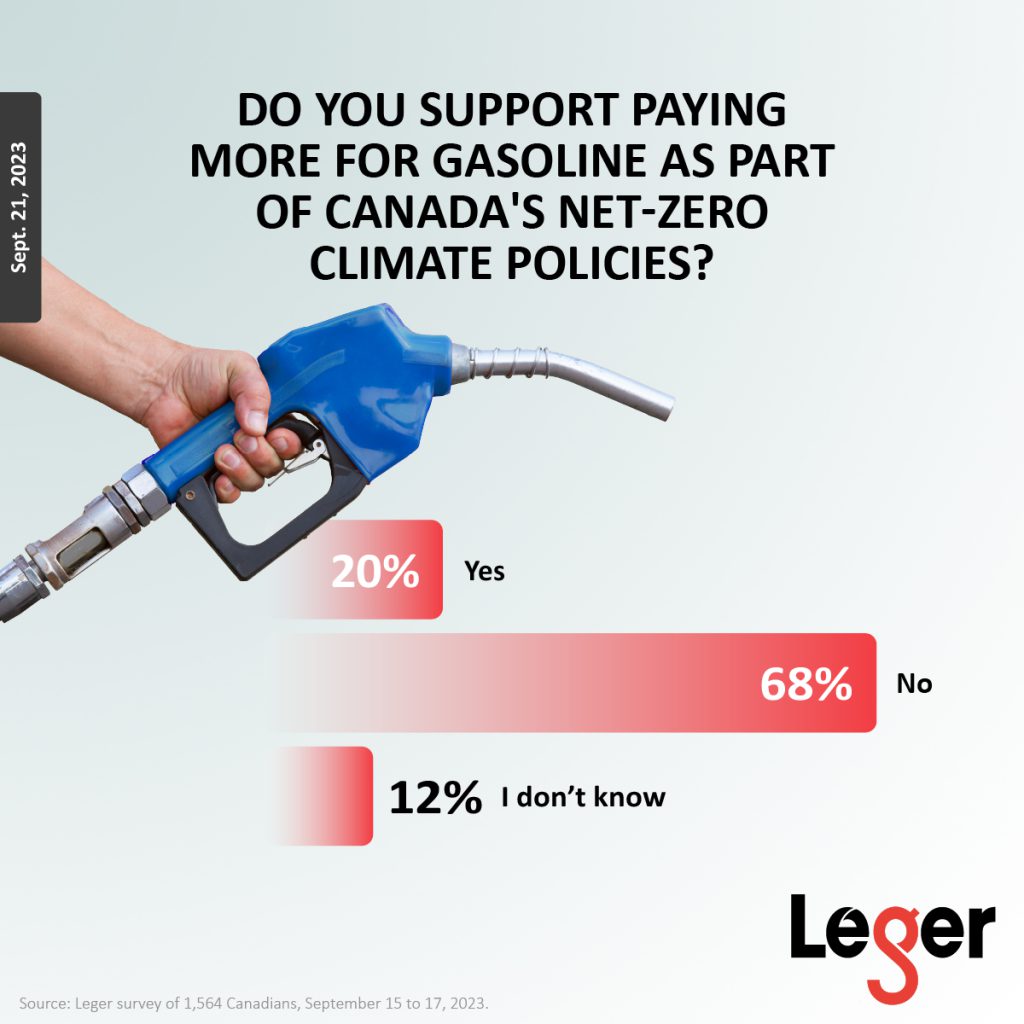In April of this year, the federal government increased the carbon tax by 30%. It is now $65 per tonne, up the original rate of $20 per tonne first introduced in 2019.
The current federal government plan is to increase the carbon tax another $15 per tonne every year until it reaches $170 per tonne in 2030.
The federal government maintains the annual carbon tax increases are necessary to change Canadians’ behaviour to reduce Canada’s carbon emissions and the current rebate offsets the increased costs.
From September 15 to 17, 2023, we surveyed Canadians about their opinions on the carbon tax and their perceptions on how realistic the federal government’s plans to be net-zero by the year 2050.
Some of the key highlights of our survey about Canada’s Climate Change Policy pace include…
Canadians appear to be reaching their limit in terms of what they are willing to pay to help meet a net-zero carbon emission policy.
- Given that Canadians have been dealing with the rising costs of living, 18% believe the federal government should reduce the level of carbon tax from the current $65/tonne and 37% feel they should eliminate the tax altogether. Quebecers are more likely to feel the carbon tax should continue to rise or to be kept at the current level.
- A majority (68%) of Canadians are unwilling to pay more in taxes for gasoline (up to 40 cents/litre by 2030) to aid in Canada’s climate net-zero policies. Support for higher gasoline prices is highest among Quebecers, but just at 24%.

Because of the carbon tax, some Canadians have adjusted their behaviour, but not the majority.
- Three-in-ten have travelled less (31%), driven less (30%), and kept their homes cooler in the winter (27%) because of the carbon tax. Behavioral changes are more likely to have occurred among those willing to pay more for gasoline to support Canada’s net-zero policy. Regionally, Prairie residents are least likely to have made changes in their travel or driving habits.
Familiarity and practicality of Net-Zero 2050 Policy.
- Half (52%) are aware of the Canadian Government’s Net-Zero 2050 Policy.
- However, only 15% feel it’s realistic for Canada to be a net-zero carbon emitter in 27 years and 37% believe the deadline for being net-zero is moving too fast (although 35% think it’s going too slowly, a view particularly strong among Quebecers).
- Canadians are fairly positive that Canada can eliminate natural gas appliances and require them all to be electric within 15 years (43% think it can be done) but are more skeptical around actions such as banning natural gas for home heating by 2040 (34% this is realistic), prohibiting the sale of new gas-powered vehicles by 2035 (32%), and/or limiting the operation of gas-powered vehicles in certain areas or times of day (29%) is realistic. Across the country, Quebecers are more convinced most of these actions can be accomplished.
- Just 19% of Canadians feel it’s realistic for virtually all of Canada’s electricity generation to be converted to non-carbon emitting sources by the year 2035.
